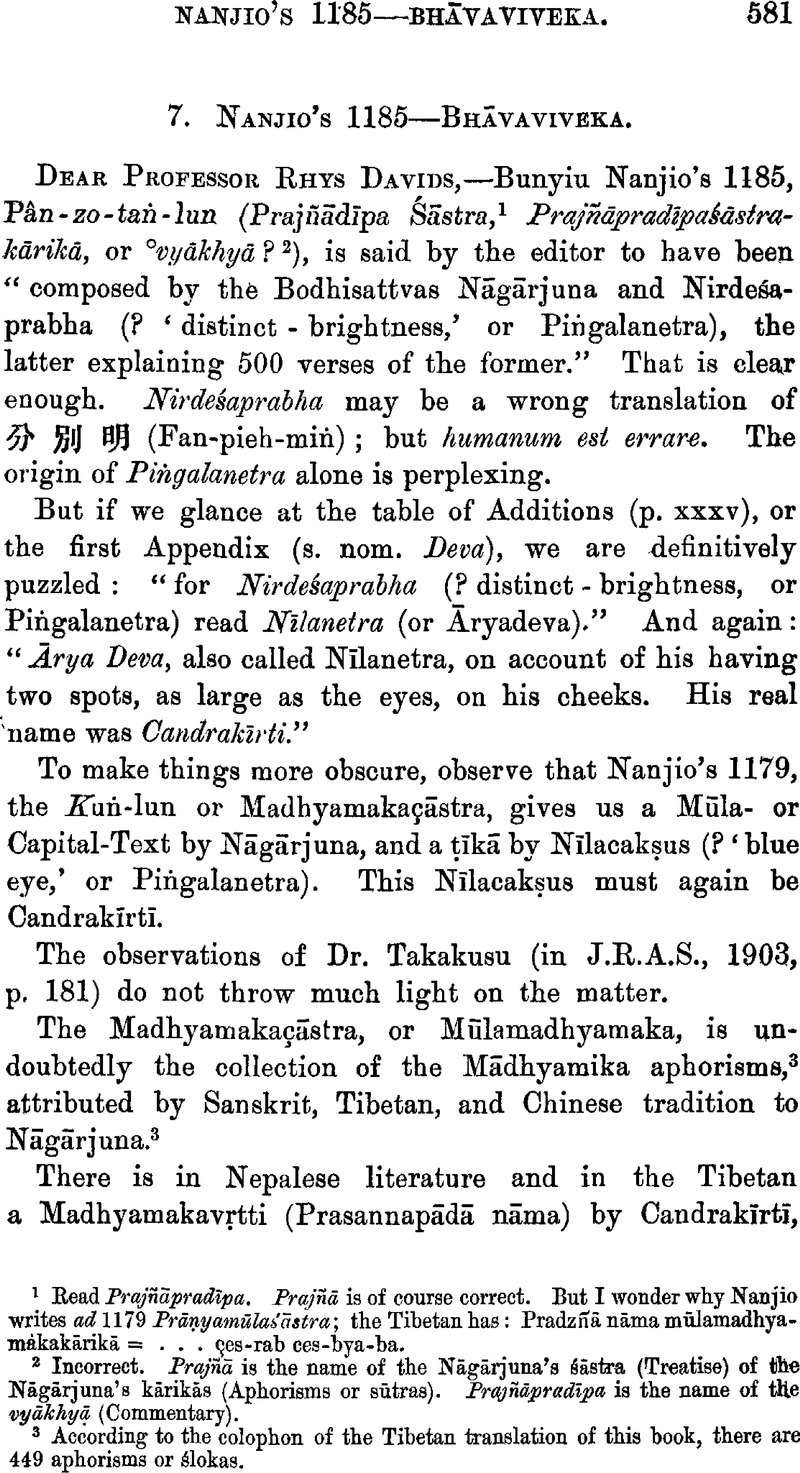No CrossRef data available.
Article contents
7. Nanjio's 1185—Bhāvaviveka
Published online by Cambridge University Press: 15 March 2011
Abstract

- Type
- Correspondence
- Information
- Copyright
- Copyright © The Royal Asiatic Society 1903
References
page 581 note 1 Read Prajñāpradīpa. Prajñā is of course correct. But I wonder why Nanjio writes ad 1179 Prāṇyatnūlaśāstra; the Tibetan has: Pradzñā nāma mūlamadhyamakakārikā = … çes-rab ces-bya-ba.
page 581 note 2 Incorrect. Prajñā is the name of the Nāgārjuna's śāetra (Treatise) of the Nāgārjuna's kārikās (Aphorisms or sūtras). Prajñāpradīpa is the name of the vyākhyā (Commentary).
page 581 note 3 According to the colophon of the Tibetan translation of this hook, there are 449 aphorisms or ślokas.
page 582 note 1 Such is the spelling of Schiefner, Kern, etc. Bhava° is not impossible.
page 582 note 2 We find in the Mahāvyutpatti a third translation of Bhāvaviveka. See Julien's MS. (Bibl. Nationale), § 172, No. 3,310 (= Minaev's edition, § 177. 22). Bhavya = skal-ldan (bhagavant, bhavya; skal-ba-med-pa = abhavya, see Śikaṣamuccaya, 209.12)= ![]() = yew-ts'ing-fan = being-clear-distinction = clear distinction of the being. (H. V. P.)
= yew-ts'ing-fan = being-clear-distinction = clear distinction of the being. (H. V. P.)


